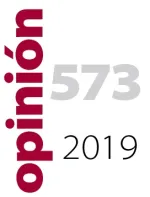Broken Consensus in the Fight for the Soul of Europe

As Alexis de Tocqueville portrayed in his Democracy in America, “as the election draws near, the activity of intrigue and agitation of the populace increase; the citizens are divided into hostile camps, each of which assumes the name of its favourite candidate; the whole nation glows with the feverish excitement.” If the trill before the elections is a crucial characteristic of the emerging American democracy, the hasty debates before the balloting to the European Parliament presage the forging of the European project. European Commission vice-president Frans Timmermans spelled it out: “These are not ordinary elections. These elections are about the soul of Europe.” Indeed the very nature of the EU seems to be at stake, contented by factions that respectively want further vs. less integration, strengthening vs. weakening EU institutional power, more vs. less Europe simply put.
Today’s hostile camps – to keep with Alexis de Tocqueville – look different as they have been to date. The traditional left-right cleavage made room for a novel axis of confrontation between pro-European and anti-European forces. The former embrace all mainstream national parties, which at the European level mainly consist of three groups: the Progressive Alliance of Socialists and Democrats (S&D), the Alliance of Liberals and Democrats for Europe (ALDE) and the European People´s Party (EPP). Notwithstanding their ideological and practical political differences, they share the interest in fortifying European integration as well as its core institutions (especially the Council), as testified by the informal agreement through which they have ruled the European Parliament in the past.
On the other hand, we find the anti-European bloc, which gathers together parties mainly positioned at the right and far-right pole of the political spectrum, including the German Alternative für Deutschland (AfD), the FrenchRassemblement National (RN), and the Italian Lega. In general, Eurosceptic parties of at least 16 Member States’ have reasonable chances to win seats in the European Parliament. Some of them have been part of existing Eurosceptic groups in the European Parliament such as Europe of Nations and Freedom (ENF) and Europe of Freedom and Direct Democracy (EFDD). After the elections these parties are expected to merge in the new European Alliance for People and Nations (EAPN), as declared by its (self-) proclaimed leader, Matteo Salvini from the Italian Lega. The fortune of the anti-European project seems precisely to rest on the latter: the EAPN’s coalition building capacity among Eurosceptic forces.
From this perspective the anti-European bloc’s fate is still in play, and the outcome depends on the Italian-Polish axis and, more precisely, the potential agreement between Salvini’s Lega and Kaczyński’s PiS (Prawo i Sprawiedliwość, Law and Justice). Both are ruling parties in their respective national contexts and, taken together, are expected to hold more than 50 seats, which would give them about 7% of the votes in the European Parliament. The first informal meeting between the two leaders took place in January 2019, when Salvini visited Warsaw. Aside from their Eurosceptic rhetoric, these two parties have many things in common: i) a right-wing conservative ideology and positioning in the political spectrum; ii) a strong catholic-nationalist essence; iii) a harsh aversion towards immigration with the preference to safeguard the white-Christian identity; iv) and the declared defence of the national sovereignty (to the detriment of European sovereignty).
However, what seems to be a good basis for cooperation at first glance becomes more complicated under closer scrutiny. The elephant in the room is without doubt Vladimir Putin's Russia. While Lega has always sustained pro-Putin stances (recently being accused of receiving Russian funds for contesting May election), PiS views Russia as a security threat to Poland. Evidence from the Polish-Hungarian alliance shows that when PiS feels an ally (in this case Hungary) is too close to Russia, it can temporarily withdraw from the coalition. The other hot topic is migration. Despite both parties sharing a clear anti-immigration plan for the EU, when it comes to concrete measures their agendas are at odds. With Italy as an EU border country, Salvini has always backed the idea of relocation quotas within the EU. On the other hand, PiS has headed for the opposite direction: worried about the “Islamisation” of Poland, Kaczyński has opposed the relocation quotas, abiding by Visegrad-Group’s rejection of any compulsory mechanism of responsibility sharing.
These are only two examples of tensions present inside one of the core axes of the anti-European faction. Given that Kaczyński, at least to date, has not joined the European Alliance for People and Nations, points to the fact that centrifugal forces exceed centripetal forces in the anti-European faction. In this regard another significant example to consider is that of Viktor Orbán’s FIDESZ (Magyar Polgári Szövetség, Hungarian Civic Alliance), key player and potential ally of the anti-European bloc, which seems willing to maintain its membership in the EPP after the election.
This, of course, does not preclude anti-European parties from putting differences aside for the sake of strategy. Yet, experience shows that for populist-nationalistic parties such choice is not a zero-sum game: to push identity aside for utilitarian calculi may imply indeed a huge electoral cost.
Food for thought for the pro-European bloc: highlighting and strategically addressing the contradictions in the anti-European bloc, focusing on its own strengths and offering a positive vision for Europe´s future, could work better then threatening European citizens with the end of the EU at the hands of anti-European reactionary forces.
Key Words: EU; European Parliament; EPP; S&D; ALDE; AfD; Salvini; Le Pen; Kaczynski; Orbán; Fidesz; Eurosceptic; anti-European; far-right
E-ISSN: 2013-4428
D.L.: B-8439-2012